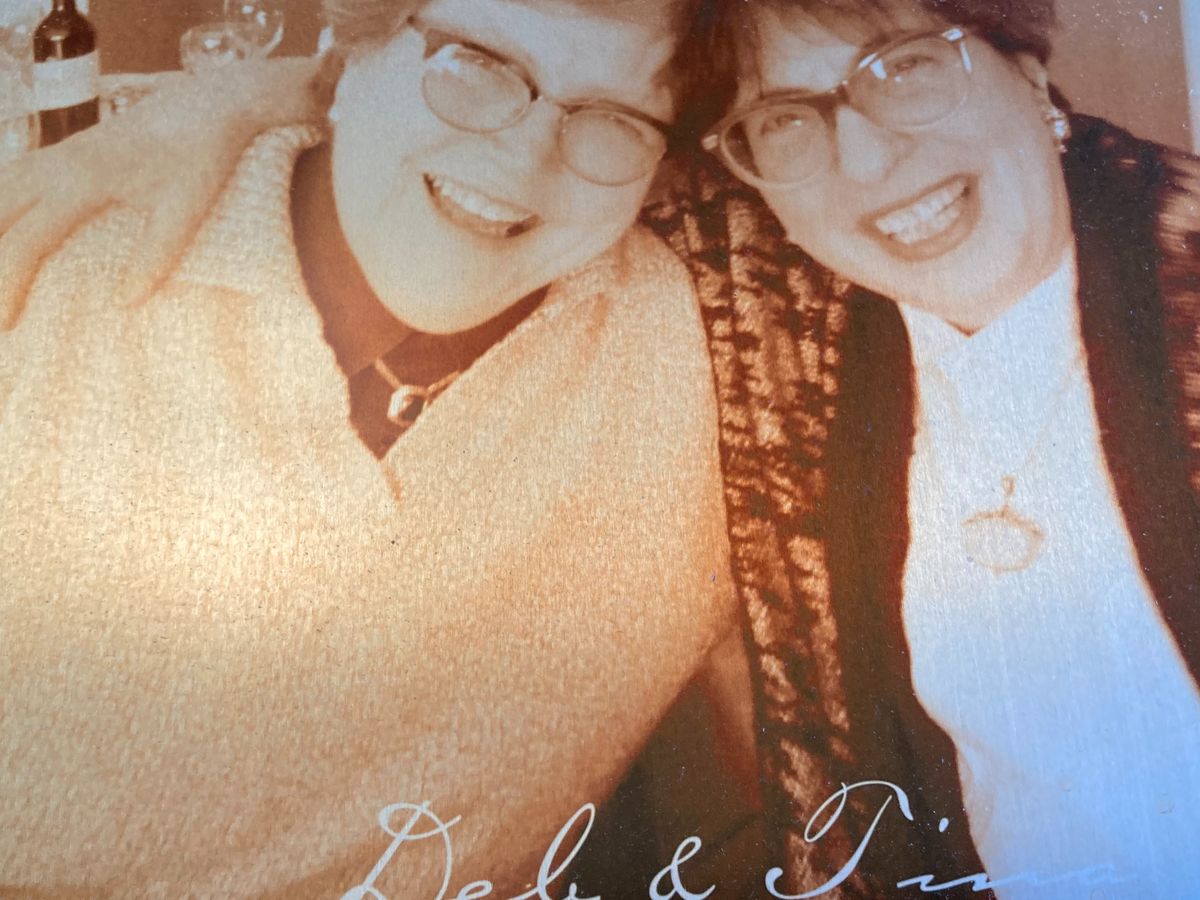Thanks to the support of family and friends, I have reached my goal. I am so grateful to everyone who has contributed to this campaign. Thank you.
Tina
Hi my name is Joanne and I am fundraising for my sister Tina
No one knows how or when our time to leave this world will come. One thing is certain. Often when a medical crisis strikes, our insurance and medical system fail us and many face devastating financial hardships. Deb Fralin is 70. She and her wife Tina Veneziano moved to Rio Rancho New Mexico 8 years ago. They chose Rio Rancho for its lower cost of living which would afford them the ability to own a home. Both are native to Massachusetts where current real estate trends made it impossible for them to buy.
They found their dream home and lived modestly. Deb suffers from Fabry disease, an inherited, progressive neurological disorder, that occurs when the enzyme alpha-galactosidase – A cannot break down fatty materials known as lipids into smaller materials that supply energy to the body. By the time, they moved to New Mexico, her condition kept her from working. She collected social security while Tina worked full time as an Optician. On Memorial Day Weekend, Deb had a fall at home and spent 3 and half hours on the floor before Tina found her. It was determined that Deb suffered a severe stroke, often a risk for people with Fabry disease.
After a stay in the ICU, and the step-down unit, Deb was transferred to a rehab center. The hospital and rehab admissions were a nightmare for Tina, as she struggled to track down providers and get medical information. Deb was making progress at rehab but was in constant pain. Tina had to fight to get Deb round-the-clock pain management, without which she could not make further rehabilitation gains. Yet the rehab staff informed Tina that her insurance determined that Deb was not making enough progress and wanted to discharge her to home or another facility, likely one that did long-term care. Tina had to file an appeal every two days to keep Deb in rehab. She was told the cost of long-term care would be $10,000 a month out of pocket, starting rate. Care at home was out of the question as Deb had not regained mobility on her left side and was a full assist. She would require round-the-clock care, which Tina would have to pay for. Also, at this time her insurance stopped paying for care at the rehab. It would not kick in again for another 30 days.
Deb continued to be in pain, complicated by the development of bed sores, a common occurrence for patients confined to bed. On July 29, she was transferred back to the hospital ICU because of infected bed sores and a urinary tract infection. A week later, she was also diagnosed with a bone infection. Tina was informed that if broad-spectrum antibiotics did not take care of it, the only course of action would be to remove the infected bones, leaving no chance of recovering any mobility. Her cognition declined, her swallow weakened, and the gains made at rehab were lost.
Since returning to the hospital, Deb’s prognosis is “not good” per one ICU doctor. Even if the antibiotics clear the infection, the raging skin infection will likely bring it or another infection back, to her bones or any vital system. While she receives wound care, what she needs to heal the skin infection is to be able to ambulate and take the weight off her backside. Deb continues to be in excoriating pain, her breathing labored. In her moments of clarity, she has asked for end-of-life care. When the hospital staff suggested putting in a port for IV antibiotics, she refused. She has also asked that her feeding tube be removed. Hospice has consulted Tina and she has begun to review her options.
Tina's financial choices have always been to pay out of pocket for Deb’s care or spend down her modest savings of $28,000 and other assets for Deb to be placed on Medicaid, which would pick up placement payments. Hospice care is covered by insurance. Taking Deb home is not possible for Tina with the level of care she requires and the modifications to her home that she would need to make. Hospice has suggested a placement at an assisted living facility that can partner with Hospice for end-of-life care.
- Throughout this time, Tina has still been working full-time. She is applying for FMLA but when granted, it will not be paid time off. She is hoping to be off work for at least the next month to see Deb through this final phase. She is already $17,000 into bills and will need to sign on for another $6000 for Deb to be accepted into an assisted living facility. Deb was transferred to a small, family-run assisted living facility on the evening of August 10. Around 11 pm, August 11, Tina received a call that Deb was failing. The Hospice nurse was called in. Tina and Deb's sister Brenda were able to be at the assisted living all night. Deb passed away around 6 am August 12.
Your generosity would help Tina pay for Deb’s medical bills, placement, and memorial costs, as well as Tina’s unpaid time off. Thank you for taking the time to read their story.

